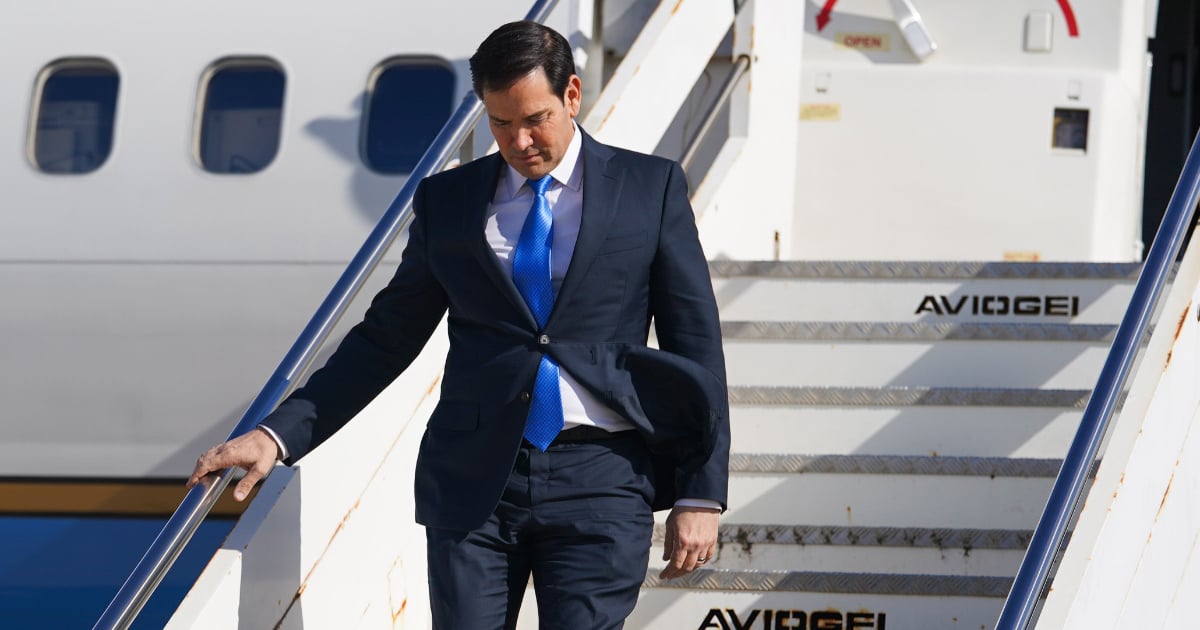More than a hundred employees of the National Security Council (NSC) were placed on administrative leave this Friday as part of a restructuring ordered by the new acting National Security Advisor and current Secretary of State, Marco Rubio.
The measure, confirmed by White House officials to CNN, represents one of the most drastic purges in the NSC since its inception. The massive layoffs were announced via an email from the head of the agency, Brian McCormack, which was sent at 4:20 p.m.
The message indicated that the affected employees had 30 minutes to collect their belongings or arrange a time to do so if they were not on campus. The subject line of the email read: “Your return to the home agency,” suggesting that many of the workers had been temporarily assigned from other government agencies.
The decision comes just weeks after President Donald Trump appointed Rubio as interim National Security Advisor, while also keeping him as Secretary of State, in a move that further consolidated his power within the cabinet.
Rubio, 53 years old and the son of Cuban immigrants, has become one of the most influential figures in the administration, leading both foreign policy and national security.
Among those dismissed are career officials and political appointees from the Trump administration itself. According to sources close to the matter, the decision was made abruptly, generating internal criticism for its lack of professionalism, especially as it occurred just before a long holiday weekend and amid alleged leaks of personal data.
Comprised of foreign policy experts from throughout the United States government, the NSC typically serves as a key body for coordinating the president’s foreign policy agenda.
This restructuring marks a new phase for the NSC, which, under Trump, saw a diminished role as the key coordinator of presidential foreign policy. Now, with Rubio at the helm, a centralized and hardline management is expected, aligned with the strategic priorities of the White House.
Rubio stamps his own mark on a foreign policy of strength, control, and security
The arrival of Marco Rubio in the dual role of Secretary of State and interim National Security Advisor has constituted a “revolution” in the foreign policy of the Trump administration.
From his position, Rubio aligns himself with the foreign policy objectives of the Republican magnate, aware that he now holds one of the most strategic roles in the executive branch.
With a firm focus on national security, immigration control has become an immediate priority. Under his leadership, foreign aid programs have been suspended and funds have been redirected towards repatriation operations. The approach can be summed up as follows: less global assistance, more resources to secure borders and protect domestic interests.
The institutional redesign has also impacted the traditional structures of the State Department. Rubio has initiated a complete restructuring of USAID, aiming to consolidate diplomatic functions and eliminate what he deems unnecessary expenses. Programs focused on diversity and equity have been deactivated, aligning with a more pragmatic vision centered on results and efficiency.
In the corridors of international diplomacy, Rubio has intensified pressure on allies that rely on U.S. protection, such as NATO countries, and has demanded greater military investment from them. In turn, he has warned strategic partners about China’s influence, with particular emphasis on key regions such as the Caribbean and the Panama Canal.
As tensions escalate in various parts of the globe, Rubio operates under Trump’s orders while keeping an eye on the complexity of scenarios like that in Ukraine or the Gaza Strip, as well as the traditional alliances of the United States and the preferences of the current administration, which leans towards dialogue and understanding with rivals like Russia, questioning the agreements and treaties signed with partners such as the European Union or Canada.
